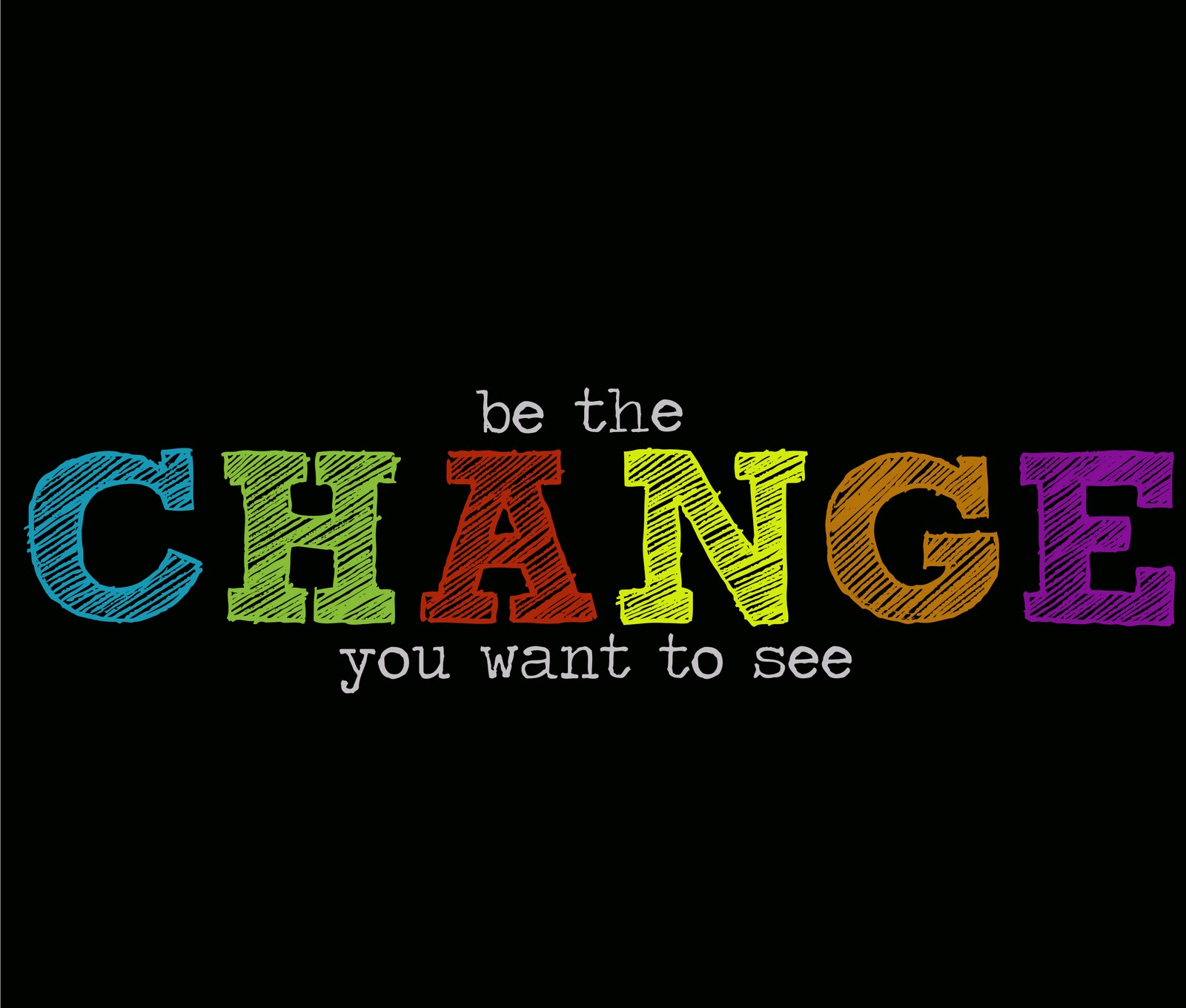Mahatma Gandhi has been quoted as saying, “Be the change that you wish to see in the world.” But, like all great quotations, that may not be true. According to an op-ed piece from the New York Times in 2011:
It turns out there is no reliable documentary evidence for the quotation. The closest verifiable remark we have from Gandhi is this: “If we could change ourselves, the tendencies in the world would also change. As a man changes his own nature, so does the attitude of the world change towards him. We need not wait to see what others do.” Here, Gandhi is telling us that personal and social transformation go hand in hand, but there is no suggestion in his words that personal transformation is enough. (Source: http://www.nytimes.com/2011/08/30/opinion/falser-words-were-never-spoken.html, Accessed 1.26.2019)
The words attributed to Gandhi certainly make sense, for instance, when talking about peace, honesty or some other type of philosophical or philanthropic quality. In other words, if you want to see peace, be a peaceful person; if you want to see more honesty, then be honest; if you want to see less anger, then be less angry.
When it comes to change, however, we are change. Our bodies change every day from the time we’re born to the day we die. Our cells completely change every 7 years. For instance, the skin cells you can now see on your body will be gone in a month and replaced by new cells…that will be gone in another month.
But if we seek peace, for example, we must first become a peaceful person. Similarly, if we seek to manage change, then we must be open to change. This is especially important when planning for change since the routes leading to significant improvement or transformative innovation may not be clear-cut. There will no doubt be “meta” change; that is, the process designed to create change will itself change as adjustments may need to be made. This is precisely what’s meant by “metamorphosis.”
Sadly, there are some people who are so focused on attaining the goal, and who may craft an impeccable plan to implement the change in order to reach that goal, they may not be open to the possibility of the change that may need to happen along the way to achieving the goal.
And if we want to see significant improvement, can we instantly “significantly improve” through “significant change?” Or does significant improvement start with small improvements, which will lead to other improvements? Does transformative innovation start with huge innovations, or are small innovations necessary to prepare the way for the truly transformational result?
Whether big or small, it will serve us well to remember where to focus. As Jack Dixon has been quoted as saying, “If we focus on the results, we will never change; if we focus on the change, we will see results.”
